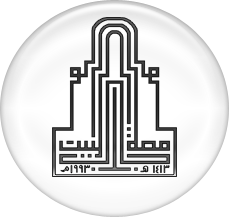| DC Field | Value | Language |
|---|
| dc.contributor.author | خلوق ضيف الله آغا | - |
| dc.contributor.author | محمد حمد الغرايبة | - |
| dc.contributor.author | شبلي أحمد عبيدات | - |
| dc.contributor.author | إيناس محمد الغرايبة | - |
| dc.date.accessioned | 2020-11-10T23:29:22Z | - |
| dc.date.available | 2020-11-10T23:29:22Z | - |
| dc.date.issued | 2019-06-19 | - |
| dc.identifier.uri | http://hdl.handle.net/123456789/2025 | - |
| dc.description.abstract | ملخص
بينت الدراسة معنى المقاصد العالية والمقاصد الجزئية، وحكم تحصيل التزكية، وأهميتها، ومكانتها بالنسبة للمقاصد الأخرى، وذكرت أدلة مقصد التزكية من القرآن الكريم، والسنة النبوية، كما ذكرت نماذج تطبيقية لمقاصد جزئية لمقصد التزكية في زكاة الفطر، وتوصلت الدراسة إلى نتائج عدة، أهمها: أنه يمكن تحقيق مقصد التزكية بأمور كثيرة، منها التوحيد، والصلاة، والصدقة، ومحاسبة النفس، والدعاء، وأن من المقاصد الجزئية لمقصد التزكية في زكاة الفطر، تطهير الصائم، وتأكيد مبدأ المسؤولية المالية في الأسرة.
Abstract
The study showed the meaning of the high purposes and partial purposes, and the ruling on the collection of the recommendation, its importance and its status for the other purposes, and the evidence of the intention of recommendation from the Holy Quran and the Sunnah, as mentioned examples of application of partial purposes of the purpose of Zakat al-Fitr recommendation,: That it is possible to achieve the purpose of recommendation in many things, including Tawheed, prayer, charity, self-accountability, and pray, and that the partial purposes of the purpose of Zakat al-Fitr, purification of fasting, and the emphasis on the principle of financial responsibility in the family. | en_US |
| dc.subject | - | en_US |
| dc.title | المقاصد الجزئية لمقصد التزكية - زكاة الفطر أنموذجاً- | en_US |
| dc.type | Other | en_US |
| Appears in Collections: | مج16، عدد 3 لسنة 2020
|

